NIAID participates in or funds many different consortia, clinical trial programs, networks, and research collaborations that help to move science forward. These are listed here, with new ones added all the time. Use the Search for Programs or Networks field to narrow your search.
Search Results
26 ResultsAccessing Clinical Data
Antibacterial Resistance Leadership Group (ARLG)
Antiviral Drug Discovery (AViDD) Centers for Pathogens of Pandemic Concern
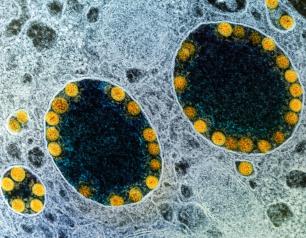
Biocontainment Research Facilities
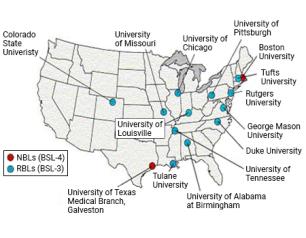
Bioinformatics Resource Centers for Infectious Diseases Program
Centers for Research in Emerging Infectious Diseases (CREID)
Centers for Research on Structural Biology of Infectious Diseases (CRSTAL-ID)
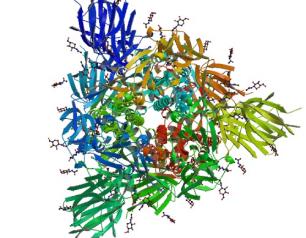
Centers of Excellence for Influenza Research and Response (CEIRR)
NIAID established the Centers of Excellence for Influenza Research and Response (CEIRR) to study natural history, transmission, and pathogenesis of influenza and provide an international research infrastructure to address influenza outbreaks.
Centers of Excellence for Translational Research (CETR)
Collaborative Influenza Vaccine Innovation Centers (CIVICs)
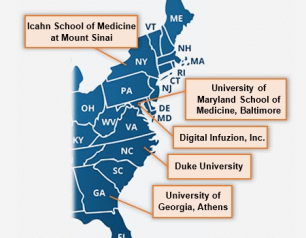
Combating Antibiotic-Resistant Bacteria Biopharmaceutical Accelerator (CARB-X)
Combating Antibiotic-Resistant Bacteria Interdisciplinary Research Units (CARBIRU)
FEND for TB
Genomic Centers for Infectious Diseases (GCID)
The NIAID Genomic Centers for Infectious Diseases (GCID) provide insights into the biology of microbes, their role in pathogenesis, and their interactions with the host, including the microbiome, by supporting a diverse set of genomic capabilities, such as high-throughput sequencing and related genomic technologies.
Global Vaccine and Immunization Research Forum
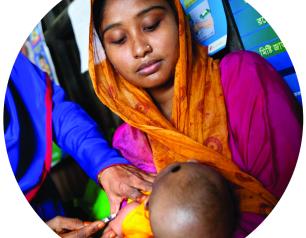
Immune Mechanisms of Protection Against Mycobacterium tuberculosis Centers (IMPAc-TB)
Infectious Diseases Clinical Research Consortium (IDCRC)
International Centers of Excellence for Malaria Research (ICEMR)
Research and Development of Vaccines and Monoclonal Antibodies for Pandemic Preparedness (ReVAMPP)
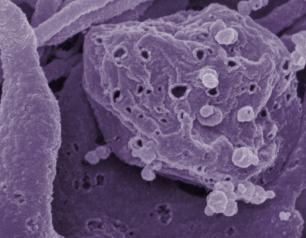
SARS-CoV-2 Assessment of Viral Evolution (SAVE) Program
Systems Biology Consortium for Infectious Diseases
The NIAID/Division of Microbiology and Infectious Diseases (DMID) Systems Biology Consortium for Infectious Diseases is a group of interdisciplinary scientists that bridge disparate scientific disciplines including microbiology, immunology, infectious diseases, microbiome, mathematics, physics, bioinformatics, computational biology, machine learning, statistical methods, and mathematical modeli
Trans-NIH Microbiome Working Group (TMWG)
Transatlantic Task Force on Antimicrobial Resistance (TATFAR)
Tropical Medicine Research Centers (TMRCs)

Tuberculosis Research Advancement Centers (TRACs)

